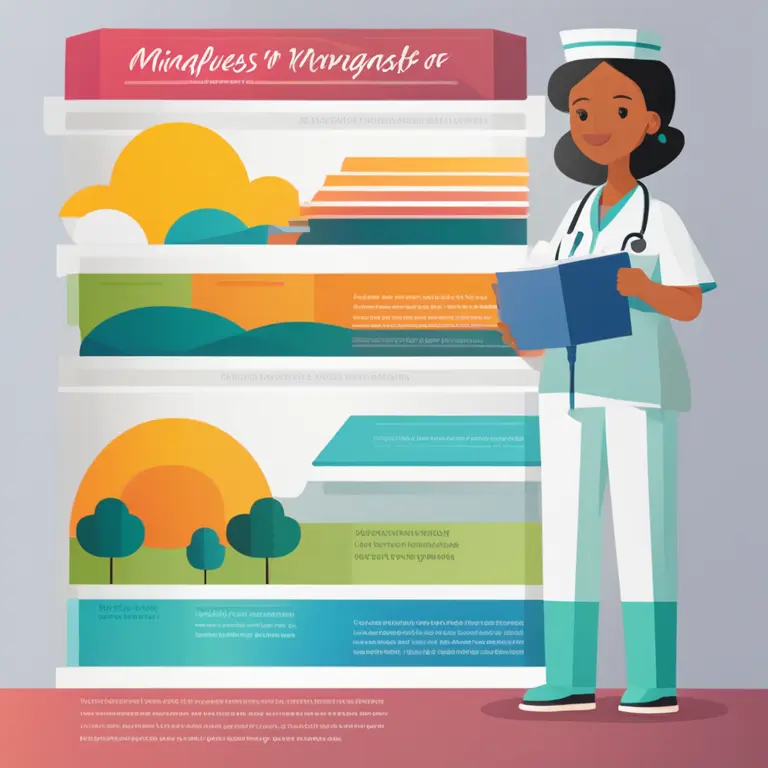
Mindful Moments: Meditation Practices for Nurses
Discover the transformative power of mindfulness meditation in supporting the well-being of nurses amidst their demanding schedules and emotional challenges.
article by Hina Kurosawa
Introduction to Mindfulness for Nurses
Nursing is a profession that is as rewarding as it is challenging. The daily rigors of patient care, long shifts, and the emotional toll of medical emergencies can leave nurses feeling stressed and burnt out. Mindfulness meditation offers a sanctuary for the mind and soul, providing nurses with tools to maintain equilibrium and emotional resilience. This practice aids in reducing stress, enhancing focus, and promoting a sense of inner peace — crucial components for the demanding healthcare environment.

Benefits of Mindfulness in Nursing
Research has shown that mindfulness meditation can have profound effects on mental health, reducing symptoms of anxiety, depression, and fatigue. For nurses, this translates to better coping strategies in stressful situations, improved patient relationships, and heightened job satisfaction. Embracing mindfulness can also support physical health by lowering blood pressure, improving sleep quality, and boosting the immune system — particularly beneficial for medical professionals dedicated to health and wellness.

Incorporating Meditation into a Nurse's Routine
One might wonder how busy nurses can incorporate meditation into their demanding schedules. The beauty of mindfulness is in its versatility. Short, regular sessions of deep breathing or guided visualizations can be practiced during breaks, before shifts, or even at a nurse’s station. By recalibrating their focus and intention, nurses can cultivate a sense of calm and clarity, arming themselves against the tidal wave of daily stressors.

Personalized Meditation Techniques
There is no one-size-fits-all approach to mindfulness meditation. Nurses should seek out techniques that resonate with them personally. Some may find solace in focusing on their breath, while others may prefer body scans or progressive muscle relaxation. The key is consistency and personalization. Guided meditation apps and resources tailored for healthcare providers are more available than ever, adapting to the needs of those in the nursing field.

Building a Community of Mindful Nurses
While personal practice is vital, cultivating a community of mindful professionals can amplify the benefits. Hospitals and healthcare institutions are beginning to recognize the value of mindfulness and offer group meditation sessions, workshops, and retreats specifically for medical staff. Peer support not only encourages regular meditation but also fosters a work environment that prioritizes mental health and compassion.
Continued Education and Practice
Mindfulness is a skill that benefits from continuous practice and education. Online courses, books, and seminars aimed at healthcare professionals now include mindfulness training. With a growing body of evidence supporting the practice, it’s likely that mindfulness techniques will become an integral part of nursing curricula, equipping future nurses with the tools to manage stress from the very start of their careers.
Implementing Mindfulness for Long-Term Resilience
Embracing mindfulness meditation isn’t merely a temporary fix; it’s a transformational lifestyle change. Nurses who consistently practice mindfulness report a lasting impact on their approach to life and work. They are better communicators, more empathetic caregivers, and exhibit higher levels of patient care quality. As the healthcare landscape continues to evolve, mindfulness will play an essential role in sustaining the heart of nursing — compassionate, skilled, and holistic patient care.
Published: 1/18/2024
Modified: 1/18/2024
More predictions
Come back here soon to learn more about yourself and your future


Mindfulness Meditation: A Path to Lasting Happiness
Discover how mindfulness meditation can enhance your sense of wellbeing and lead you to a happier life in this insightful article.


Mindful Teaching: Meditation Practices for Educators
Discover the benefits of mindfulness meditation for educators seeking balance, enhanced concentration, and emotional wellbeing in a demanding profession.


A Beginner's Guide to Mindful Meditation Explained
Discover the essentials of mindful meditation to start your journey towards inner peace and heightened awareness with this beginner-friendly guide.